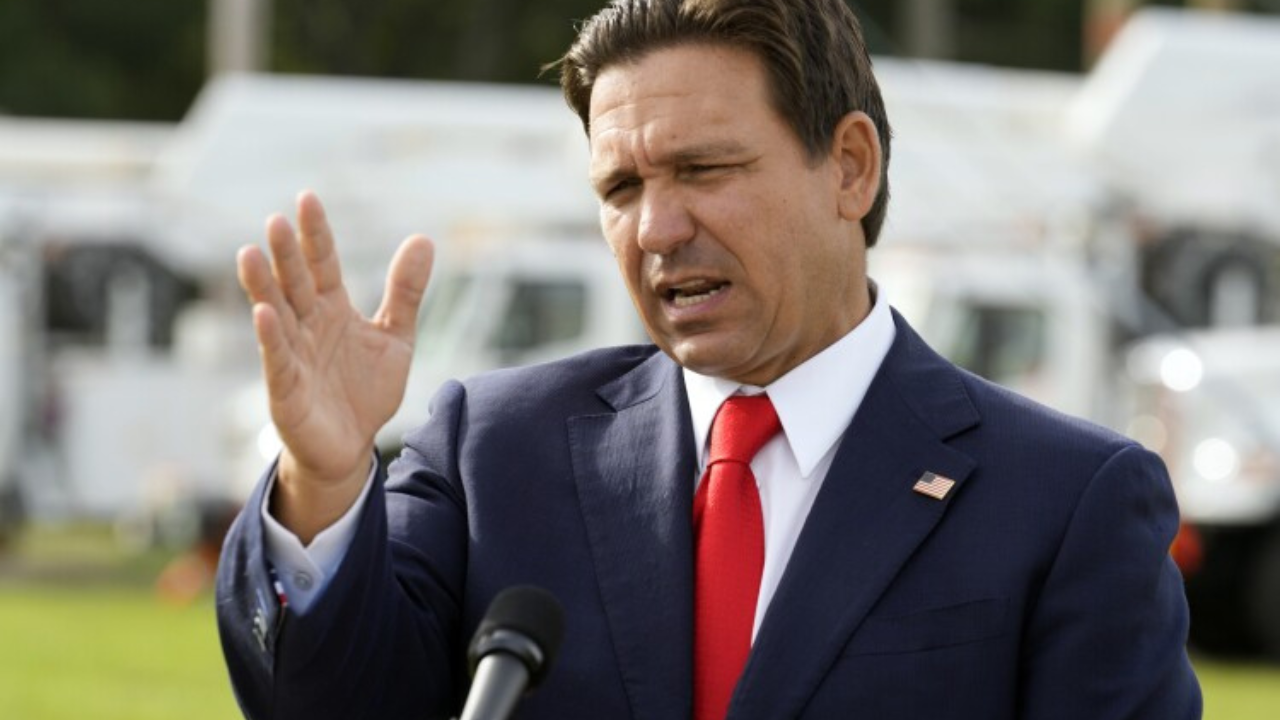TALLAHASSEE, Fla. — Gov. Ron DeSantis vowed Thursday that Florida will press ahead with its immigration detention program despite a federal judge’s order halting operations at the Everglades-based camp known as “Alligator Alcatraz.”
U.S. District Judge Kathleen Williams issued an 82-page ruling late Wednesday granting a preliminary injunction. It requires the state to stop bringing in new detainees, begin winding down the facility within 60 days, and remove fencing, lighting, and generators once it is emptied. She found that state officials ignored federal environmental laws and never explained why the site needed to be located in the middle of Big Cypress National Preserve.
“What is apparent, however, is that in their haste to construct the detention camp, the state did not consider alternative locations,” Williams wrote. Her order, she said, “does nothing more than uphold the basic requirements of legislation,” meant to protect the Everglades, where decades of bipartisan effort have focused on restoration.
WATCH: 'Not going to deter us': DeSantis says deportation effort will continue despite court order
DeSantis dismissed the ruling as judicial activism and confirmed the state has already filed notice to appeal with the 11th Circuit.
“This is a judge that was not going to give us a fair shake,” the governor said during an appearance in Bay County. “This was preordained, very much an activist judge that is trying to do policy from the bench. This is not going to deter us.”
He added that Florida will keep expanding capacity because “because of the success of Alligator Alcatraz, there’s demand for more.”
DeSantis, last week, announced a new facility in Baker County — the so-called “Deportation Depot” — which he said will hold about 2,000 detainees with an airport nearby to expedite removals. State officials estimated it would take about two weeks to become operational.
The ruling was hailed by environmental groups, attorneys, and the Miccosukee Tribe, who brought the case under the National Environmental Policy Act.
“What happened yesterday is not only a victory for the Everglades, it is a victory for the rule of law and for holding government accountable,” said Eve Samples, executive director of Friends of the Everglades. “It is important to remember that environmental laws in our country stand on equal footing with other laws, and they are being tested in ways that we haven't seen in more than a half century.”
Elise Bennett, Florida director for the Center for Biological Diversity, said the order confirms “the Everglades need less pavement choking her native soils, not more; less stadium-style lighting blocking out the starlight, not more.”
The Miccosukee Tribe called the decision a proof of tribal sovereignty: “This order vindicates the tribe’s rights, and we will continue to defend our sovereignty,” said Curtis Osceola. “When it comes to our homelands, there is no compromise.”
Attorneys for the plaintiffs said they expect the state to seek a stay of the order in the appellate court, but believe the decision will hold. Attorney Paul Schwiep called the order “an amazing piece of legal handiwork.”
“No one's declaring victory, right,” said Schwiep. “So we understand that we have a lot of work ahead of us to defend this win in the 11th Circuit Court of Appeal and then to turn a preliminary injunction into a permanent injunction in the trial court.”
The legal fight now moves to the appellate panel, while state officials continue preparations for the Baker County facility. DeSantis, who has joked that the “Deportation Depot” would not be used to detain rowdy Georgia fans during football season, insists the effort is central to Florida’s partnership with the Trump administration.
“We're now in this position where we're leading the state efforts to help the Trump administration actually enforce the law and actually remove these illegal aliens, not just Florida, but from our country,” he said.

Woman found guilty of killing sister in Carrollwood
A DNA expert testified Wednesday that Patton's DNA was found inside rubber gloves that were buried with her sister in the backyard.





